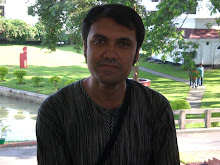Associated Press
Bangladesh to allow exploration of offshore gas fields
By Julhas Alam
05.07.08, 3:29 PM ET
DHAKA, Bangladesh -Bangladesh will sign deals with oil and gas companies for exploration of new offshore gas fields by October to meet its growing energy needs, an energy official said Wednesday.
Muqtadir Ali, a Director of the government-run Petrobangla, said one domestic and six international companies, from including the United States and China, have taken part in a bid to explore gas fields in the Bay of Bengal.
The country called an international bidding in February, and Petrobangla opened the bid documents on Wednesday to complete evaluation of the proposals in three weeks for a final decision, Ali said.
The government may select more than one companies for the exploration, he said, adding that the final deals would be sealed by October.
The selected companies will have to drill exploration wells and conduct seismic survey after the deals are signed, he said.
The Houston, U.S.-based Conoco-Phillips, Australia's Santos International Pty. Ltd., Longwoods Resources of the U.S.-China joint venture, Korea International Oil Corporation, China National Offshore Oil Corp. (nyse: CEO - news - people ), known as CNOOC, and Bangladesh's Tullow are among the players that have joined the bidding.
"We are satisfied with the response," Ali said, as he unveiled the bid details.
Currently Bangladesh, with about 15 trillion cubic feet (425 billion cubic meters) of proven and recoverable gas reserves, is facing at least 100 million cubic feet of gas shortages a day.
Officials and experts say the crisis will aggravate in the near future.
The nation has only one offshore gas field, which is managed by the Edinburgh, Scotland-based Cairn Energy PLC. It has been producing gas from the Sangu plant in the Bay of Bengal since 1998.
Copyright 2008 Associated Press. All rights reserved.

